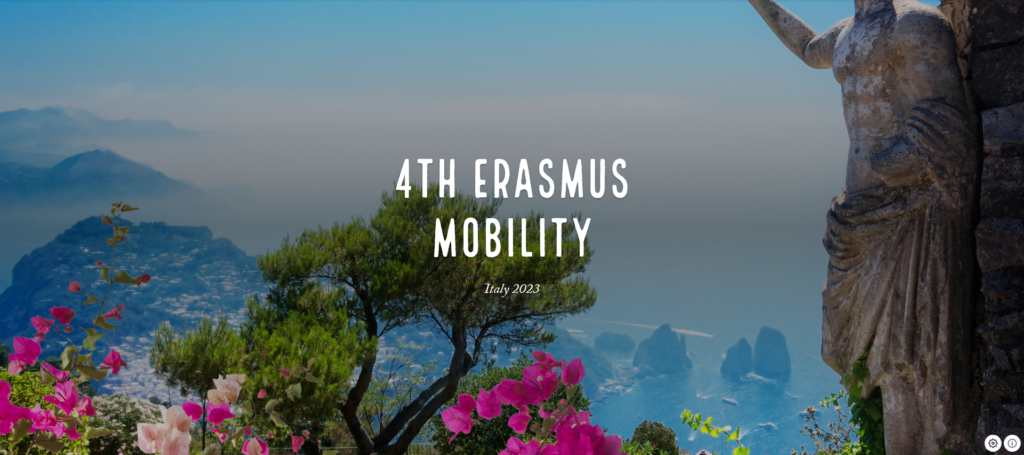
Reading the Past, creating the Future
This LTTA focused on Cultural Heritage with the following activities 1: Welcoming at school at the presence of regional, local and school Authorities, families and students during the “Erasmus International Afternoon”: students from the joining countries were presenting their schools and countries to the whole community, 2- CLIL in Art/History – Students will learn the vocabulary required to participate in the tours planned during this Mobility.(Pompei- Stabiae Villas- Cuma and the most important Museums in Naples) with a focus on myths and legends about the visited places 3- Italian students will run “Survival Italian Phrases” lessons for the guests and they will create a multilingual handbook 4. “Speak up Workshop” on public speaking, during which the students will learn techniques and tricks to overcome stage fright to help them prepare the activities for the Farewell Party 5. Workshop for teachers on how eTwinning Platform works for professional development to gain the eTwinning School Label 6. Farewell Party to disseminate all the project activities in order to share the cultural heritage with presentations, national dances and cooked dishes organized by students in international groups The methodology of the project will be based on formal and informal methods of education; students will be guided to work in national groups (peer education) and then in international groups online (Task Based Learning / CLIL) and on site (Gamification – Debating) in order to fulfill the following objectives: -deepening citizens’ awareness and intercultural competences, – improving English language competence, breaking the language barrier and cultural barriers. Increased motivation to learn foreign languages. – increased competence in public speaking and self-presentation, reducing the stress associated with public speaking, – development of soft and social competences such as the ability to work in national and international / multicultural groups. – improving computer skills, creating presentations in English. – learning about the cultural heritage of the partner country, promotion of national languages, music and dances. – promotion of the city / region.